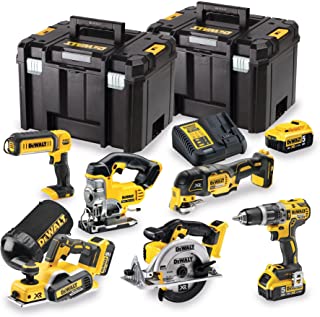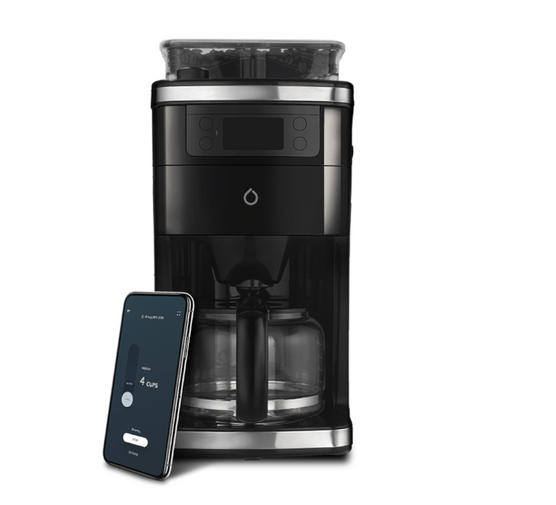
Alexa compatible devices can transform your home into a smarter place for you to live and work. These devices allow you to control lighting, security systems, entertainment, and more with voice commands. They're also great for adding a fun, interactive element to your living space and can be very useful in helping you save money on energy costs.
Best Alexa Devices for your Home
Echo speakers are one of the most loved Alexa devices, with many built-in features that will improve your life. You can use them to order pizza delivery, create a shopping list and control your music.
You can also control your home's heating, lighting and air conditioning systems with these devices. You can adjust the color or dimming of your lights by speaking into your device. Additionally, you can set up automated routines that will make it easier to control your devices.

Smart Thermostats
Smart thermostats, another Alexa-compatible device, allow you to control the temperature in your home. These thermostats are simple to install and can be controlled via voice command or an app for your smartphone or tablet. Thermostats can adjust temperature automatically in your home by using an outside sensor.
They can help reduce monthly energy costs and also save money by heating or cooling different areas of your home. Some smart thermostats can remember your preferred temperature settings, so you don’t need to be concerned about it.
Routines & Grouping
A smart hub such as the Echo 4th Generation Smart Hub can be used to make Alexa's job easier by connecting all your smart devices together. These devices link all your smart devices together so that you can control them all in one place with a single app.
To make things easier, you can group your devices in different areas. For example, you can have your front door open to welcome guests when they arrive, and you can have your coffee maker on autopilot so that it starts making coffee the moment you wake up in the morning.

Some smart plugs are compatible with Alexa and will be controlled by your voice, while others are only available through their own apps. Philips Hue smart plugs can be combined with your home's lighting system to be controlled by Alexa.
It can be challenging to choose the right smart house alexa devices. To make your home truly intelligent, it's important to know how to set them up so they can communicate with Alexa.
You should stick with Alexa compatible devices. While it's best to keep them as cheap as possible, be sure to inspect the durability of each one before you buy. These devices are compatible with Alexa and will last for years. However, if they show signs of wear, you may need them to be replaced.
FAQ
Why is it better not to use credit card when shopping online?
Credit card companies are offering an array of benefits such as rewards programs, free shipping, cash back, etc. You also have protection from fraud. People should consider them over debit card because they don't have any fees.
Credit cards also provide flexibility for customers who want to pay off the balance on time. Credit cards let you shop with confidence, regardless of how much money your account has.
How can you avoid fraud online with credit cards?
If you use credit cards online, make sure you check your statements carefully before making purchases. You should only pay what you actually owe. To check your bank statements frequently for suspicious activity, Call your card issuer immediately if you see any unusual charges. They will often cancel the transaction, and then refund any money that was taken from your account.
Contact your local police station if it seems you have been swindled. You can file a report with the Federal Trade Commission (FTC) as well.
How can I protect my privacy online?
It's important for consumers to know what information they are giving away when they use an online service such as Amazon.com. Consumers should always ask themselves if they want to share personal information with companies like Amazon. If you don’t wish to share this type of information with Amazon, you might need to limit your shopping choices on sites where you feel safe sharing your private data.
How can you be a smart buyer when shopping online?
Success lies in making informed decisions. You need to know what you want and why you want it. Then find the best deal for you.
It is important to compare prices and shop around. You'll be able to choose where you want to spend your money.
Look carefully at reviews and ratings when you are looking at products online. They may help you decide whether to buy or not.
You don't have to buy the entire price. There are many savings options, such as coupons and promotional offers.
You might consider financing with a credit company if your purchase is expensive. Many offer special deals such as 0% interest for 12 month.
There are many ways to save money on online shopping. These are just a few.
Statistics
- The vast majority only change a password to protect privacy a few times a year (27 percent) or, more likely, never (35 percent). (pcmag.com)
- An approximately 90% increase in price affords Hotel X the opportunity of extreme profits under severe circumstances. (dos.ny.gov)
- Last Black Friday, I bought a stove from Lowes at 40% off, receiving 24 months of interest-free financing (from Lowe's). (meetfabric.com)
- Your Online Purchases 79% of Americans purchased goods and services online in 2018, which is expected to exceed 90% in 2023. (meetfabric.com)
External Links
How To
How to shop online safely
Online shopping is one way to get goods and services at a very convenient price. But, convenience comes with a cost. Online shopping has many advantages, but there are also risks. The biggest risk is identity theft. Identity theft poses the greatest risk. Identity thieves may use your personal data (name and address, credit card number, credit card number, etc.) to steal money from your account or obtain fraudulent loans against it. They then make a profit by selling your stolen information on a black market. Here are some tips for staying safe online.
-
Use a secure website. SSL encryption is a free service offered by most online stores to protect customers' data. It means that any information entered onto their website such as names, addresses and phone numbers is encrypted so that only you have access to it. It blocks anyone from seeing the information you enter. Make sure that you have a valid certificate issued from a recognized CA when choosing an online store. When you browse, look for the green padlock icon beside the URL bar.
-
Your password should not be divulged. When you sign up for your first account, you will receive an email asking to confirm your username and email address. This information should never be given to anyone. Don't keep them in your wallet. They could also be used to access your accounts if you lose your wallet. Instead, store them on your computer. It is also recommended that you change your passwords at least once every three months.
-
Keep track of your orders. If you're sending items to yourself or others, make sure you keep track of where you send those packages. Many people are scammed by believing they sent something to their own address, when it was actually sent elsewhere. Before you make payment for shipping, be sure to check the tracking number. Do not ship anything without proof that it was delivered. Contact the company immediately if you're not satisfied with the service provided.
-
Know who you're dealing with. Websites will often ask for sensitive information like your full name, date, birth date, Social Insurance Number and bank routing number. These details help them identify you, so be careful about giving them out. Google "what information does a website need" to find out if it is. You'll find many solutions.
-
Pop-up windows are a danger. Pop-up windows can bombard you with offers and special deals from many sites. While some ads might seem legit, others may trick you into giving out private information. For example, a fake anti-virus program could ask for your banking information, credit card numbers, and social security number. Never click on suspicious links to avoid being tricked.
-
Phishing scams are to be avoided. Phishing scams use hackers to pretend to represent reputable companies and trick consumers into providing their financial information. Phishers often create emails that look like they come from banks or retailers, encouraging users to log in and update their account information. The hacker can access your finances once you have given your personal information. Hackers could even take over your bank accounts or transfer funds from one account to another. Many resources are available on spotting a phishing scam, including How to Spot a Fake Email Scam.
-
Do your homework. Before signing up for a deal, always read the fine print. Clear and simple terms and conditions must be included in any contract that you sign. Make sure to read all information and understand exactly what you're agreeing. It is important to avoid hidden fees or charges in order to save money.
-
You can shop around. Be open to shopping around. Compare prices from different websites until you find a good deal. You can also compare shipping prices when ordering multiple items. Shipping costs will vary depending on which website they are from. It's worth paying a little extra for fast shipping.